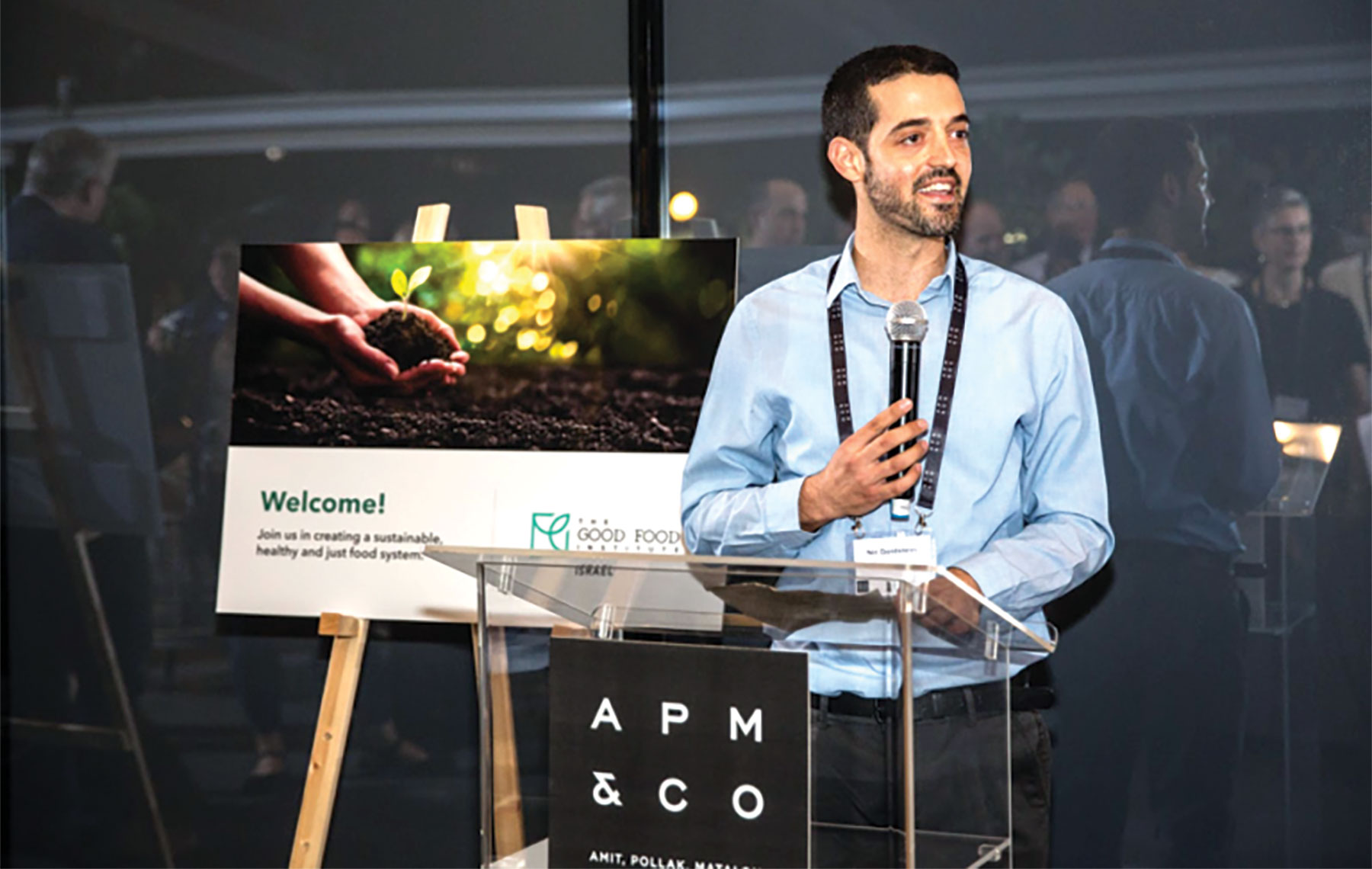 Nir Goldstein
Nir Goldstein Israel is known as one of the world’s most vegetarian- and vegan-friendly countries. Perhaps it’s the abundance of fresh and delicious produce, Jewish dietary laws or the pressure to have a fit body in a seemingly endless beach season. In fact, Israel has the highest population of vegans per capita in the world and Israel’s research sector is at the global forefront of research and development in the burgeoning “food tech” sphere.
Nir Goldstein, managing director of the Israel branch of the global nongovernmental organization the Good Food Institute (GFI), believes Israel’s academic and research sector is uniquely poised to help usher in the massive shifts in food production and consumption needed to “nourish the world sustainably.” The GFI, he said, believes in the “power of food innovation and markets to accelerate the transition of the global food system to plant-based and cell-based meat, eggs and dairy.”
According to Goldstein, although the general public understands the health, environmental and economic dangers of continuing to produce and consume animals, as consumers we cannot change our behaviors fast enough. So the GFI tries a different strategy to promote widespread systemic change. Instead of targeting the “morality of the consumer,” Goldstein said the institute has “decided to go with the consumers: develop tasty, price-conscious, easy-to-use foods without all of the negative parts of animal agriculture.”
Goldstein got his start in food tech as a patent attorney and business consultant while working with some of Israel’s largest companies, mostly in the food industry. There, he began observing market growth. “The strongest growth engine for a traditional dairy company is their milk alternatives, such as soy,” he said. Goldstein explained the potential for exponential market growth, saying, “We are using technology, so the saturation will be faster than traditional food products. I don’t think we can do much more with chicken than we have been doing up to now.
“The scientists eventually get a steak that was a few cells. It’s steak, but it doesn’t involve raising or slaughtering an animal.”
“Our senior scientist in Israel, Dr. Tom Ben Arye, is actually growing real meat, but outside of the animal,” Goldstein said. “He invented the cultivated steak.” The scientists, he explained, “take cells in a small biopsy, take them outside of the animal, feed those cells and make a whole tissue out of them, and eventually get a steak that was a few cells. It’s steak, but it doesn’t involve raising or slaughtering an animal.”
Goldstein noted that gene editing is an emerging field in Israel. “Today, we can take animal genes and put them into plants and teach the plants how to grow animal protein,” he said. “For example, we can take genes from a cow and insert them into a soybean and teach the soy how to produce cow’s milk. So the soy milk that you drink will actually be cow’s milk.”
Sitting in his brand new and still largely empty office, Goldstein said, “I had a great time working with Israel’s biggest companies, but I wanted to know what I could do to develop a better world.”
And that world, he believes, will be developed in Israel. The same country that brought the world drip-irrigation, water desalination and the cherry tomato will soon be bringing us cow’s milk made from soybeans and lab-grown filet mignon.






















 More news and opinions than at a Shabbat dinner, right in your inbox.
More news and opinions than at a Shabbat dinner, right in your inbox.